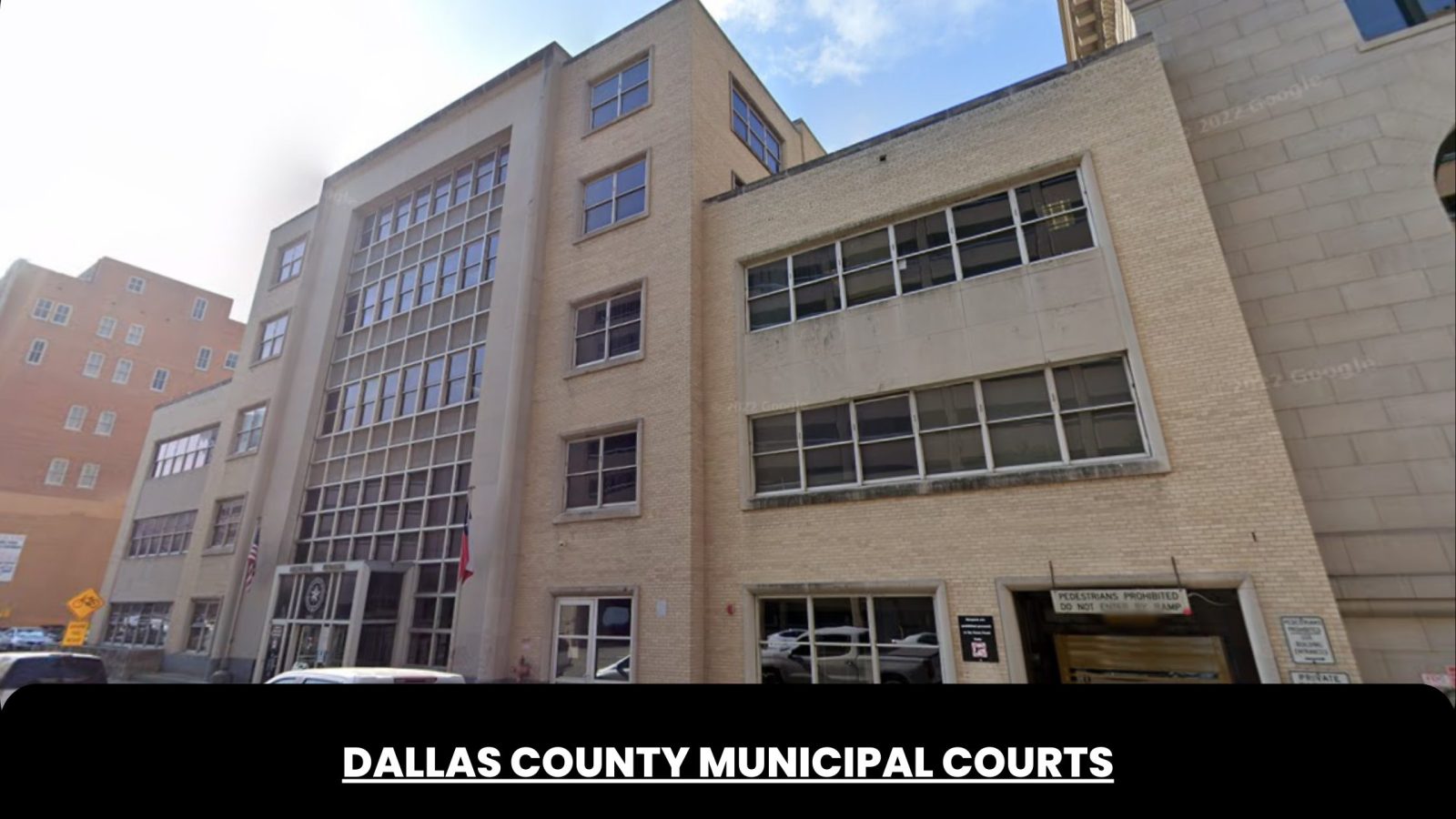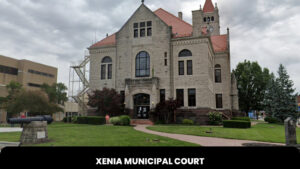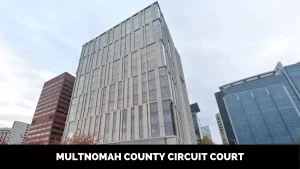Dallas County Municipal Courts
Time
Working Hours:
Monday: 7:30 am–4:30 pm
Tuesday: 7:30 am–4:30 pm
Wednesday: 7:30 am–4:30 pm
Thursday: 7:30 am–4:30 pm
Friday: 7:30 am–4:30 pm
Saturday: closed
Sunday: closed
Connect with a Attorney
Dallas County Municipal Courts serve as an integral part of the local judicial system, handling a wide range of cases that affect the lives of the county’s residents. From traffic violations to misdemeanors and code enforcement, these courts play a vital role in maintaining order and justice within the community. In this article, we will explore the functioning of Dallas County Municipal Courts, the types of cases they handle, the responsibilities of judges and court staff, the procedures followed, and the resources available for defendants.
Introduction
Municipal courts are an essential component of the legal system, focusing on cases that occur within a specific jurisdiction, such as a city or county. In Dallas County, Texas, the municipal courts play a crucial role in addressing a broad spectrum of legal matters that impact the community. From minor traffic offenses to code violations, these courts handle cases that directly affect the lives of Dallas County residents.
Understanding Dallas County Municipal Courts
What are municipal courts?
Municipal courts are local courts responsible for adjudicating and resolving cases that occur within a particular municipality or county. They operate at the lowest level of the judicial system hierarchy, addressing non-felony offenses and civil disputes.
Jurisdiction and responsibilities
Dallas County Municipal Courts have jurisdiction over a wide array of cases, including traffic violations, misdemeanor offenses, code enforcement violations, and civil matters. They ensure fair and efficient resolution of these cases while upholding the principles of justice and the protection of individual rights.
Structure and organization
The municipal court system in Dallas County is organized into various courts, each presided over by judges appointed or elected to their positions. These courts follow specific procedures and guidelines to ensure the smooth functioning of the judicial process and deliver justice to the community.
Types of Cases Handled in Dallas County Municipal Courts
Dallas County Municipal Courts handle a diverse range of cases. Understanding the different types of cases helps defendants and individuals involved in legal matters navigate the specific procedures and rules associated with each case type.
Traffic violations
One of the most common types of cases seen in Dallas County Municipal Courts are traffic violations. These include speeding tickets, red light violations, parking offenses, and other infractions related to motor vehicle laws.
Misdemeanors
Municipal courts also handle misdemeanor offenses, which are criminal offenses that are less serious than felonies. Misdemeanors encompass a wide range of offenses, such as petty theft, simple assault, trespassing, and public intoxication.
Code enforcement
Code enforcement violations involve cases related to building codes, zoning ordinances, and other regulations established by the municipality. These cases often focus on maintaining public safety, proper land use, and the general well-being of the community.
Civil cases
In addition to criminal matters, Dallas County Municipal Courts also handle certain civil cases. These can include small claims disputes, landlord-tenant disputes, and other civil matters with limited financial stakes.
The Role of Judges and Court Staff
The efficient functioning of Dallas County Municipal Courts relies on the expertise and dedication of judges and court staff. They play vital roles in ensuring a fair and just process for all parties involved in a case.
Judicial process
Judges presiding over Dallas County Municipal Courts are responsible for impartially overseeing cases, interpreting and applying the law, making evidentiary rulings, and delivering fair judgments. They provide guidance, hear arguments from both sides, and make decisions based on the facts presented.
Judge’s responsibilities
Judges in municipal courts have the responsibility to maintain order in the courtroom, ensure due process is followed, and uphold the rights of defendants. They are also responsible for managing the court’s docket, scheduling hearings, and overseeing the overall functioning of the court.
Court staff roles
Court staff members, including clerks and administrative personnel, play an essential role in supporting the judges and facilitating the daily operations of the court. They handle administrative tasks, maintain records, assist with filing procedures, and provide information to defendants and the public.
Procedures and Courtroom Etiquette
Dallas County Municipal Courts follow specific procedures and guidelines to ensure a fair and efficient judicial process. Understanding these procedures and adhering to proper courtroom etiquette is crucial for defendants and individuals involved in legal proceedings.
Scheduling and docket management
The court’s docket, or schedule, is carefully managed to ensure timely resolution of cases. Defendants and their legal representatives need to be aware of their court appearance dates, deadlines, and any necessary documentation required to avoid delays or potential penalties.
Courtroom procedures
When appearing before the court, defendants must follow specific procedures. These include addressing the judge respectfully, standing when asked to do so, and speaking clearly and courteously. It is essential to understand and respect the authority and decorum of the courtroom.
Dress code and behavior
Proper attire and behavior in the courtroom are essential. Defendants and visitors should dress in a manner that demonstrates respect for the court and the legal process. It is advisable to dress conservatively, avoiding casual or revealing clothing.
see also Clarion County Courthouse
Filing and Processing a Case
Initiating a case in Dallas County Municipal Courts involves a series of steps and requirements. Understanding the process and providing the necessary documentation is vital for the successful filing and processing of a case.
Initiating a case
To initiate a case, the plaintiff or complainant must file the appropriate documentation with the court. This typically includes a complaint or petition outlining the details of the case and any supporting evidence or documentation.
Required documentation
Depending on the type of case, various documents may be necessary for filing. These can include police reports, witness statements, photographs, contracts, or any other evidence relevant to the case. It is important to gather and provide all relevant documentation to support the claims or defenses presented.
Case processing timeline
Once a case is filed, it goes through a processing timeline within the municipal court system. This timeline may involve preliminary hearings, discovery processes, negotiations, and, eventually, a resolution through trial or alternative dispute resolution methods.
Legal Representation and Self-Representation
Defendants in Dallas County Municipal Courts have the right to legal representation. Engaging an attorney or choosing to represent oneself, known as pro se representation, has implications that defendants should consider carefully.
Hiring an attorney
Engaging the services of an attorney is advisable, especially for complex cases or situations where legal expertise is required. Attorneys can provide guidance, navigate the legal process, negotiate on behalf of the defendant, and present a strong defense.
Pro se representation
In certain instances, defendants may choose to represent themselves. This option is more common in cases that do not involve serious offenses or complicated legal matters. However, it is important to carefully evaluate one’s ability to navigate the legal system effectively and understand the potential risks and consequences.
Legal aid services
For defendants who cannot afford legal representation, there may be options for accessing legal aid services. These services provide free or low-cost legal assistance to individuals who meet specific income criteria.
Plea Options and Sentencing
Defendants in Dallas County Municipal Courts have various plea options available to them. Understanding these options and the potential outcomes of each is crucial when making decisions regarding the direction of a case.
Plea bargains
Plea bargains involve negotiations between the prosecution and the defense, aiming to reach a mutually agreeable resolution. Defendants may choose to plead guilty or no contest to certain charges in exchange for reduced charges, penalties, or other favorable outcomes.
Guilty, not guilty, and no contest pleas
Defendants have the option to enter a plea of guilty, not guilty, or no contest. A guilty plea admits responsibility for the charges, while a not guilty plea contests the allegations and requests a trial. A no contest plea neither admits nor denies guilt but accepts the penalties as if a guilty plea had been entered.
Sentencing and fines
If a defendant is found guilty or pleads guilty or no contest, the court will determine an appropriate sentence. Sentencing can involve fines, probation, community service, educational programs, or a combination of these penalties. It is important to understand the potential consequences before entering a plea.
Appeals and Expunctions
Defendants who are dissatisfied with the outcome of their case in Dallas County Municipal Courts have the right to appeal their conviction or sentence. Additionally, under certain circumstances, individuals may be eligible to have their records expunged.
Appeal process
The appeal process allows defendants to request a higher court to review the decisions made in their case. It is crucial to consult with an attorney experienced in appellate law to navigate this complex process effectively.
Expunction of records
In some cases, individuals may be eligible to have their records expunged or sealed, effectively removing the case from public view. Expunction is subject to specific eligibility criteria, such as the type of offense, completion of probation, and the absence of subsequent criminal activity.
Resources and Support for Defendants
Dallas County Municipal Courts offer various resources and support services to defendants to help them navigate the legal process and address any underlying issues contributing to their involvement with the court.
Pretrial diversion programs
Pretrial diversion programs provide defendants with an opportunity to avoid formal prosecution and potential convictions by completing certain requirements, such as community service, educational programs, or counseling. These programs focus on rehabilitation and addressing the underlying causes of the offense.
Community resources
Numerous community resources are available to defendants, ranging from counseling services to substance abuse treatment programs. These resources aim to address the root causes of certain offenses and provide support to individuals seeking to make positive changes in their lives.
Probation services
For defendants placed on probation, probation services provide supervision and support to ensure compliance with court-ordered conditions. Probation officers assist defendants in meeting their obligations, such as attending counseling or rehabilitation programs, maintaining employment, and fulfilling community service requirements.
The Future of Dallas County Municipal Courts
Dallas County Municipal Courts continually strive to improve efficiency, accessibility, and fairness within the judicial system. Several developments and trends are shaping the future of these courts.
Technology and efficiency improvements
Advancements in technology are being utilized to streamline court processes, automate administrative tasks, and provide online access to court records and scheduling. These improvements enhance efficiency, reduce delays, and make information more accessible to the public.
Alternative dispute resolution
Dallas County Municipal Courts are increasingly embracing alternative dispute resolution methods, such as mediation and arbitration, to resolve cases outside the traditional courtroom setting. These approaches provide parties with more control over the resolution process and can lead to mutually satisfactory outcomes.
Community involvement
Municipal courts are recognizing the importance of community involvement in the legal system. By engaging with the community, promoting education about legal rights and responsibilities, and implementing community-oriented programs, these courts seek to foster trust, understanding, and cooperation.
Dallas Municipal Court Records
Understanding Municipal Court Records
Municipal court records serve as official documentation of legal proceedings that occur within the jurisdiction of the Dallas Municipal Court. These records provide a historical account of cases, citations, judgments, fines, and other pertinent details.
Importance of Accessing Court Records
Accessing Dallas Municipal Court records can be beneficial for various purposes. Defendants may need to review their own records to ensure accuracy or address any outstanding legal matters. Legal professionals may require access to these records for research or to build a case. Additionally, individuals interested in the transparency and accountability of the legal system may seek access to court records to gain insight into the judicial process.
Dallas Municipal Court Online Services
Online Services Overview
The Dallas Municipal Court offers online services to enhance accessibility and convenience for individuals seeking court records and information. These online services provide a user-friendly platform to access specific documents, search for citations, and gather important details related to court proceedings.
Benefits of Online Services
The availability of online services by the Dallas Municipal Court offers several advantages. Users can save time and effort by accessing court records remotely, without the need to visit the physical court location. Online services also provide the flexibility to search for specific cases or citations at any time, allowing individuals to gather information at their convenience.
Accessing Dallas Municipal Court Records Online
To access Dallas Municipal Court records online, visit the official website of the court. Look for the section dedicated to online services or court records. Follow the instructions provided to create an account or log in to an existing account, if applicable. Once logged in, users can search for specific cases, view documents, and gather relevant information.
Dallas Municipal Court Citation Search
Understanding Citation Search
The citation search feature provided by the Dallas Municipal Court allows individuals to search for specific citations issued by the court. This feature is particularly useful for individuals who want to review their citation information, including the offense, court date, and any associated fines or penalties.
How to Perform a Citation Search
To perform a citation search in the Dallas Municipal Court, access the court’s website and locate the citation search feature. Enter the required information, such as the citation number, the defendant’s name, or the vehicle information. Follow the prompts to initiate the search and retrieve the relevant citation details.
Benefits of Citation Search
The citation search feature offers convenience and accessibility. It allows individuals to quickly access information about their citations, verify the accuracy of the details, and take necessary actions, such as paying fines or contesting the citation if needed. It streamlines the process and reduces the need for in-person visits or phone inquiries.
see also Maricopa County Superior Court Case Search
Conclusion
Dallas County Municipal Courts play a vital role in administering justice within the community. From handling traffic violations and misdemeanors to addressing code enforcement and civil cases, these courts ensure the fair resolution of legal matters that impact the lives of Dallas County residents. By understanding the procedures, resources, and options available, defendants can navigate the court system more effectively, protecting their rights and achieving just outcomes.
FAQs
1. Can I represent myself in a Dallas County municipal court?
Yes, you have the right to represent yourself in a Dallas County municipal court. However, it is important to carefully evaluate your ability to navigate the legal system effectively and consider seeking legal representation, especially for complex cases.
2. How can I find the schedule for my court appearance?
You can find the schedule for your court appearance by contacting the Dallas County Municipal Court or checking their website. The court will provide you with the date, time, and location of your hearing or trial.
3. Are there any alternatives to fines for traffic violations?
Yes, in some cases, there may be alternatives to fines for traffic violations. Depending on the circumstances, you may be eligible for defensive driving courses or community service as a means of fulfilling your obligations and potentially reducing or avoiding fines.
4. Can I have my record expunged after a municipal court case?
Under certain circumstances, you may be eligible to have your record expunged or sealed after a municipal court case. Expunction eligibility criteria vary, and it is advisable to consult with an attorney to determine if you meet the requirements.
5. What should I wear to court?
When appearing in court, it is important to dress in a manner that demonstrates respect for the court and the legal process. Dress conservatively, opting for business attire and avoiding casual or revealing clothing.






